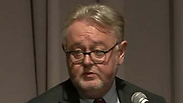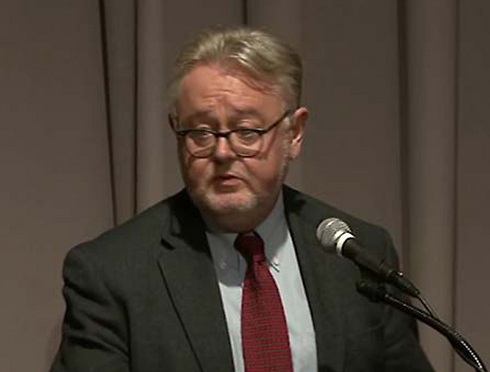
Head of UN inquiry into Gaza conflict to quit
William Schabas says he will resign immediately to prevent overshadowing the report and its findings over Israeli allegations of bias due to consultancy work he did for the PLO.
The head of a United Nations Human Rights Commission inquiry into last summer's conflict between Israel and Gaza said he would resign following Israeli allegations of bias due to consultancy work he did for the Palestine Liberation Organization (PLO).
Canadian academic William Schabas was appointed last August by the head of the UN Human Rights Council to lead a three-member group looking into alleged war crimes during Operation Protective Edge in Gaza.
In a letter to the commission, a copy of which was seen by Reuters on Monday, Schabas said he will resign immediately to prevent the issue from overshadowing the preparation of the report and its findings, which are due to be published in March.
A day after being appointed chair of the commission, Schabas found himself in the eye of the storm, with Israel announcing that it would boycott the UN investigation.
"Already, with the decision on July 23 to establish the committee, the prime minister and the foreign minister declared that the Human Rights Council had long ago turned into the 'terrorist rights council' and a kangaroo court, whose 'investigations' are pre-determined," Foreign Ministry spokesman Yigal Palmor said in a statement.
"If any more proof were needed, the appointment of the chairman of the panel, whose anti-Israel bias and opinions are known to all, proves beyond any doubt that Israel cannot expect justice from this body, whose report has already been written and all that is left is to decide who will sign off on it," Palmor said.
He has previously stated he would've liked to see Prime Minister Benjamin Netanyahu "within the dock of the International Criminal Court."
In a law journal article he wrote in December 2010, Schabas wrote that Netanyahu could be considered “the single individual most likely to threaten the survival of Israel.”
He wrote that in response to Netanyahu's statement that Israel faces "three major strategic challenges. The Iranian nuclear program, rockets aimed at our civilians and Goldstone."
A few years earlier, the professor said in an interview: “Why are we going after the president of Sudan (at the ICC) for Darfur and not the president of Israel for Gaza?” Shimon Peres was president at the time.
In 2011, Schabas co-sponsored a "Center for Human Rights and Cultural Diversity" conference in Iran. The center, that accuses Israel of apartheid policies, has strong ties to the Iranian regime, which at the time was led by Mahmoud Ahmadinejad.
But as one could expect from an experienced attorney, the international law lecturer from Middlesex University now claims that most of his comments were taken out of context and is trying to persuade the Israeli public that he is not biased against their country.
"I have solid opinions on Israel's actions and its leadership, the same as the rest of the citizens of Israel," Schabas tells Yedioth Ahronoth. "It doesn't mean that this would impair my judgment."
Schabas insisted he is not anti-Israel and that he has visited Israel "many times."
He rushed to backtrack on his criticism of the prime minister, claiming that, "I did not determine Netanyahu was guilty. I said that in my opinion he should stand trial to examine this issue."
Schabas explains that his comments were made during a panel on the International Criminal Court, and the fact it does not put Western leaders on trial. "I said that who I would've liked to see there most is Netanyahu. I was of course echoing what was in the Goldstone report, which was that the ICC should deal with the conclusions of the Goldstone report, concluding the possibility of war crimes and crimes against humanity were committed during Operation Cast Lead."
 |
Benjamin Tobias and Yitzhak Benhorin contributed to this report.












